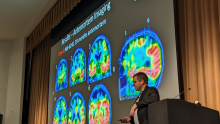Sanjay Asthana, MD, professor, and Duncan G. and Lottie H. Ballantine Chair, Geriatrics and Gerontology, has been invited by the US Secretary of Health and Human Services and the Director of the National Institutes of Health (NIH) to serve a four-year appointment on the National Advisory Council on Aging.










